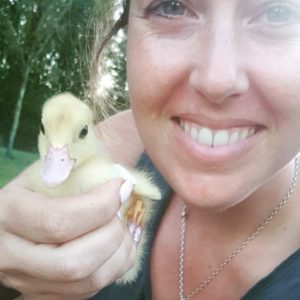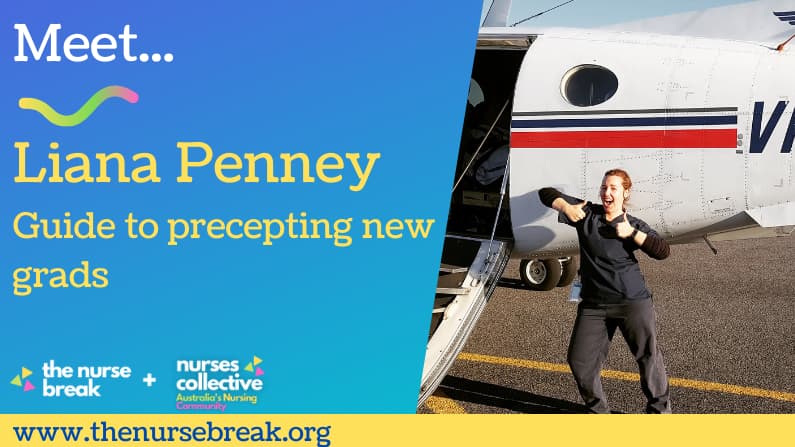Table of Contents
Meet ED/Rural & remote nurse Liana Penney. Read her guide to precepting new grads!
Check out other nurse educator related content
Suggest someone who should write for us here
Introduction
I have been nursing for 10 years, starting in General Practice in Hamilton, NZ. I moved on to Middlemore ED and spent a number of years building a strong foundation through dealing with high patient volumes of 300-400 presentations a day. These days I am a Rural and Remote agency nurse working through out QLD and NSW. In my non-nursing world I am an amateur powerlifter, a jam maker and a mum of a very lovely Muscovy duck.

Preceptors can make or break a young nurse’s experience.
My first preceptor was attentive, kind, patient and helped guide me into the world of nursing. She gave me a great foundation to start my career on, and helped pushed me to be better; while also seeing the areas I needed help in.
Starting as a new graduate nurse can be scary. You’ve gone from being at school, nose in a book for the past few years, to now being legally responsible for other peoples lives. Depending on what speciality they are starting in, it can be an overwhelming experience.
As much as precepting at times gets dismissed as being too much work, it is a fantastic way to help mould and shape our young nurses to be someone you are happy and confident in handing over your patients to.
We need passionate critically thinking nurses to be able to take the reins.
It is also a great way to refresh yourself on the latest evidence-based practice, as you (hopefully) should be asked why you are doing a particular thing the way you are doing it.
Figuring out the learning style of your preceptee is a really good way of figuring out how they are best going to respond to what you are trying to teach them. Are they a “do one, see one, teach one” kind of person; do they learn more from theory than from doing or watching? Are they requiring constant feedback on performance, or do they need a closer eye on them?
Some new grads require a structured formal approach to learning, while others can be more free-range. As we are aware in this career, everyone is different. Your teaching style may not be the kind of learning that your preceptee will learn from. That is not to say you are an awful teacher, it just means you may need to adjust your teaching style slightly. It’s not about ego, but creating the best learning environment.
I would suggest sitting down to make a list of goals together. Use your SMART goals (specific, measurable, attainable, relevant, time-based). Do both short term and long term goals. Write them down so in a few weeks you can come back and see where they are sitting. People crave progress.
Discussing strengths and weaknesses is a good way to build a foundation to work on and come back later to compare. Ask your preceptee where they think they do well and bring in your own suggestions of things they may not have thought of or realised they do well. Do the same with weaknesses/areas to improve on. Even simple things like noticing good hand hygiene, thorough documentation, or a good bedside manner are positives to feedback on.
Conflict
When conflict does occur, focus on what is right, not who is right. If your new grad presents you with conflicting information, search out the answer together. I’ve found myself a situation where the evidence has been towards a new method of treatment I wasn’t yet aware of but was brought to my attention by a new grad. Sometimes in the hospital systems, we miss out on updates to best practice, so our newer nurses coming straight from studying can have more up to date information about practices and procedures. This works in reverse also, situations where your new grad needs correcting. Again, focus on what is right, not who is right.
Remember this can be an overwhelming time for a new grad, and for yourself. Managing a clinical load and a new graduate can be a juggling act. If you find you are struggling with the workload of both, it would be fair to say to your new grad to follow and observe you for that period; especially in that high patient volume and high acuity area.
Precepting can be challenging, but also highly rewarding to help contribute towards the next wave of nurses. At the end of the day, these nurses may end up looking after someone you love in the future.
If you loved what Liana had to say & have ever thought of rural and remote nursing, she has written a how-to guide on rural and remote agency nursing
Also, here she talks about AU verses NZ nursing!
Check out here for other graduate/student articles!






You must be logged in to post a comment.